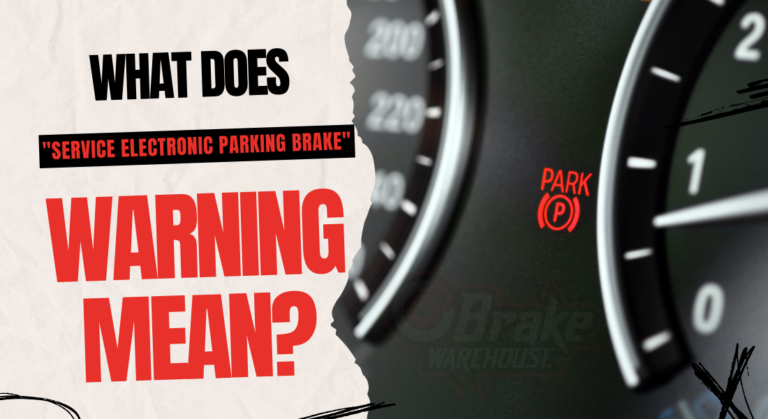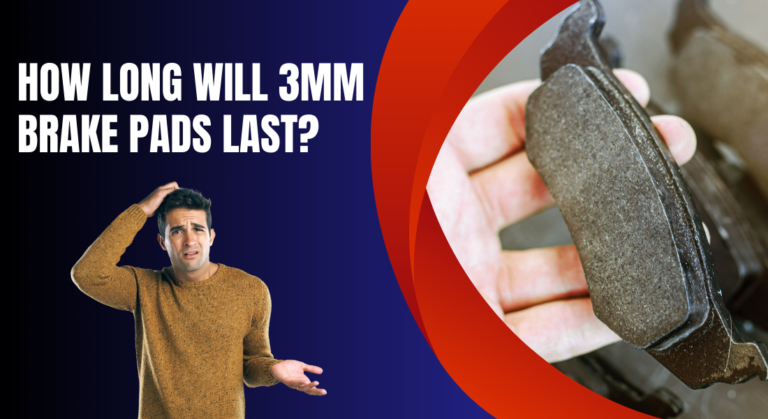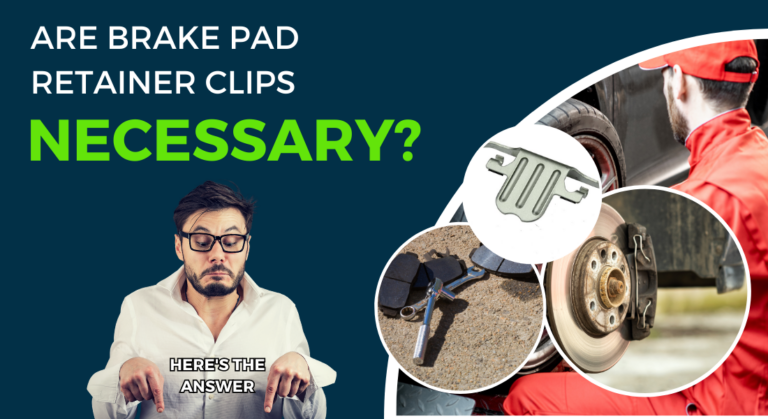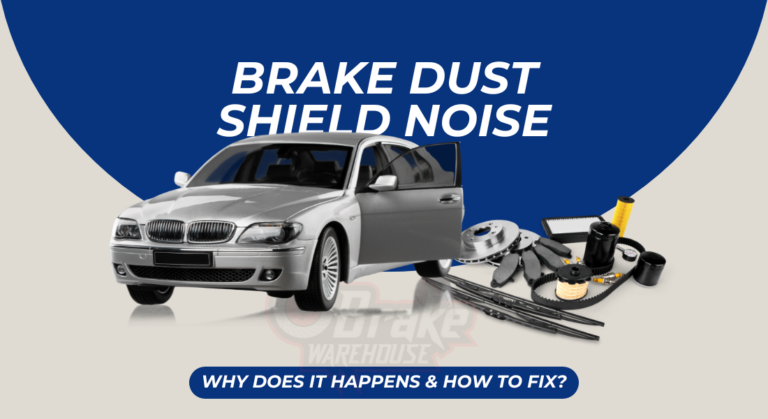Can Brake Pads Worn Out in 3 Months? (Extend Lifespan)
Brake pads are subjected to replacement after a certain period of 25,000 – 80,000 miles. However, they can wear out faster, which raises the question: Can brake pads wear out in 3 months?
In specific extreme scenarios, brake pads can wear out in three months. Aggressive driving habits, heavy usage, or low-quality brake pads can lead to rapid deterioration, necessitating replacement within this short timeframe.
I explained the reasons for faster wear and tear of the brake pads in this comprehensive guide. Also, let’s learn the tips to extend the brake pads’ longevity. Continue reading!

Can Brake Pads Worn Out in 3 Months?
The short answer is YES.
Generally, brake pads’ lifespan is between 25,000 miles and 60,000 miles. So, if your brake pads wear out within 3 months, be sure that is unusual.
The prime cause why your brake pads are damaged in 3 months is due to high friction. However, some drivers change their brake pads more often than others. Some other factors are also responsible for such issues.
Driving Style

Your driving style is a significant factor in determining how quickly your brake pads wear.
For instance, people who drive vehicles at high speed usually replace their brake pads more frequently than those who prefer smooth driving.
High speed puts much pressure on the brake pads. When you brake at high speed, excessive friction gets generated. Your vehicle will need a lot of stopping power if you brake during faster driving. Such activity puts excessive strain on the brake pads.
Whereas drivers who drive smoother and slower generally put minimal strain on the brake pads. Thus, their brake pads wear slower and offer long-term performance.
Read Also: How Long Will 3mm Brake Pads Last? (The Ideal Thickness)
Brake Pads Types & Quality

Brake pad quality plays a significant role in its longevity. At the same time, proper installation is crucial.
You will find many types of brake pads in the market: ceramic, carbon fiber, semi-metallic and organic. The durability of these brake pads varies depending on the type, installation, and quality.
For example, ceramic brake pads withstand high temperatures and high torque effectively. So, they are much more durable compared to other types. Also, if the installation needs to be corrected, the brake pads will ruin more than usual.
Consequently, the brake pad type in your car determines how often you will need to change them.
Brake Rotors & Calipers Overall Condition

Brake pad conditions also depend on the brake calipers and rotors. If the overall condition of the brake rotors and calipers is terrible, the brake pads will last up to 3 months.
For instance, brake pads will wear out faster because of the stuck brake caliper. The damaged brake caliper fails to disengage from the brake rotors.
Road Conditions

Road conditions are another significant determining factor of brake pads’ longevity. If you frequently drive the car on rugged or rough terrains, the brake pads will surely damage quickly.
You have to press the brake occasionally, creating frequent strain on the brake pads. It also overheats the brake pads and minimizes its lifespan.
That is why driving on flat terrain is recommended.
Transmission Type

Your car transmission type also plays a crucial role in the longevity of the brake pads.
How?
If your car has an automatic transmission, the brake pads will more likely damage quickly than the manual transmission.
This is because automatic transmission only depends on the brake pads to slow down the car. While manual transmission relies on brake pads and gear shifting to reduce the speed of a car.
Read Also: How Long Can You Drive Without Brake Pads? – Is It Safe
Excess Loads on Wheel

As per Newton’s first law of motion, the heavier the vehicle, the more inertia it has.
Here, the simple factor is that if you drive your car with excessive weight, your vehicle will find it harder to stop. The cause is the car gains extra momentum from additional weight. As a result, the braking system has to work harder to stop the vehicle.
Misaligned Wheels

Correct wheel alignment is crucial for car maintenance for an enhanced driving experience. Misalignment causes uneven and accelerated tire wear, unbalancing the braking system. This way, the suspension gets more strain, producing quicker wear and tear of the brake pads.
Bad or Damaged Slide Pins

Unfortunately, many of us don’t consider looking at the condition of the brake caliper slide pins. If the slide pins seized in their position, the brake pads can stick against the rotors either on the inner side or the outer side. Such incidents cause intentional or uneven wear on the brake rotors.
Read Also: Where Does The Clip Go on Brake Pads? (Install It Properly)
How to Extend the Lifespan of Brake Pads?
You can enhance your brake longevity by modifying your driving style. Also, follow the below tips.
Reduce Your Speed
Your driving habits can significantly affect the health of your brakes. Speeding up and then suddenly hitting the brakes will wear them out prematurely.
The faster you drive, the more strain it puts on your braking system when you need to stop. Aim for a smooth and gradual deceleration to preserve your brakes.
Lighten the Load
Excessive weight inside your vehicle can take a toll on your brake pads.
When you carry heavy cargo, it places added stress on your brakes, forcing them to work harder to bring your vehicle to a halt.
Opt for only essential items in your car; this not only eases the strain on your brakes but also benefits your tires and fuel efficiency.
Speaking of tires, let’s explore how to ensure you have the right ones for your vehicle.
Read Also: Brake Pad Rubbing On Rotor While Driving – How To Fix?
Routine Maintenance

To extend the lifespan of your brakes, it’s vital to ensure the vehicle’s maintenance schedule diligently.
Maintenance includes monitoring brake fluid levels, performing periodic brake fluid flushes, inspecting brake pads for wear and tear.
Regular brake services conducted by your trusted mechanic will ensure your brake system remains in peak operating condition.
By confirming your brake system’s maintenance and practicing prudent driving habits, you can enhance road safety and prolong the longevity of your brake pads, ultimately saving you from expensive brake repairs.
Single-Foot Brake Usage

Avoid using your left foot on the brake pedal while simultaneously applying the gas with your right foot, commonly known as brake riding. This habit can rapidly deteriorate your brake pads and cause brake rotors to warp.
When descending a hill, shift your vehicle into a lower gear and use gentle, intermittent brake pressure when necessary to reduce your speed.
These measures contribute to the preservation of your brake system’s integrity. Consider adjusting your driving habits and employing only one foot to prevent premature brake service visits.
Read Also: What Happens If My Brake Pad Falls Off? – The Consequences
FAQs
How many months do brake pads last?
The lifespan of brake pads varies depending on factors like driving habits and vehicle type. Typically, they can last anywhere from 30,000 to 70,000 miles (approximately 24 to 84 months with average driving), but this can vary widely. Regular inspections are essential to determine when brake pads need replacement.
Can brake pads go wrong in one year?
Brake pads can deteriorate within a year if subjected to extreme driving conditions or excessive wear. Aggressive driving, frequent braking, and low-quality brake pads can lead to accelerated wear and potentially require replacement within a year. Regular maintenance and quality brake pads can extend their lifespan.
Read Also: Are Brake Pad Retainer Clips Necessary? – Here’s The Answer
Last Words
Learning can brake pads are worn out in 3 months is important as it shows you need to follow basic driving tips. Although replacing the brake pads is inevitable, maintaining fundamental driving techniques is vital to extend the efficiency of your vehicle.
Moreover, always ensure periodic maintenance. Furthermore, whenever you notice any symptoms of bad brake pads, replace them without thinking twice.
Read Also: Wagner Oex vs Thermoquiet Brake Pads: Which One Is Better?

Meet Zayan, the mechanical genius behind the highly acclaimed brakes problems and solutions website. With over a decade of hands-on experience in the automotive industry, Zayan has become a trusted authority in the realm of brake systems.
His passion for cars, coupled with his expertise in solving complex brake-related issues, has earned him a devoted following of car enthusiasts, mechanics, and everyday drivers seeking reliable guidance.







